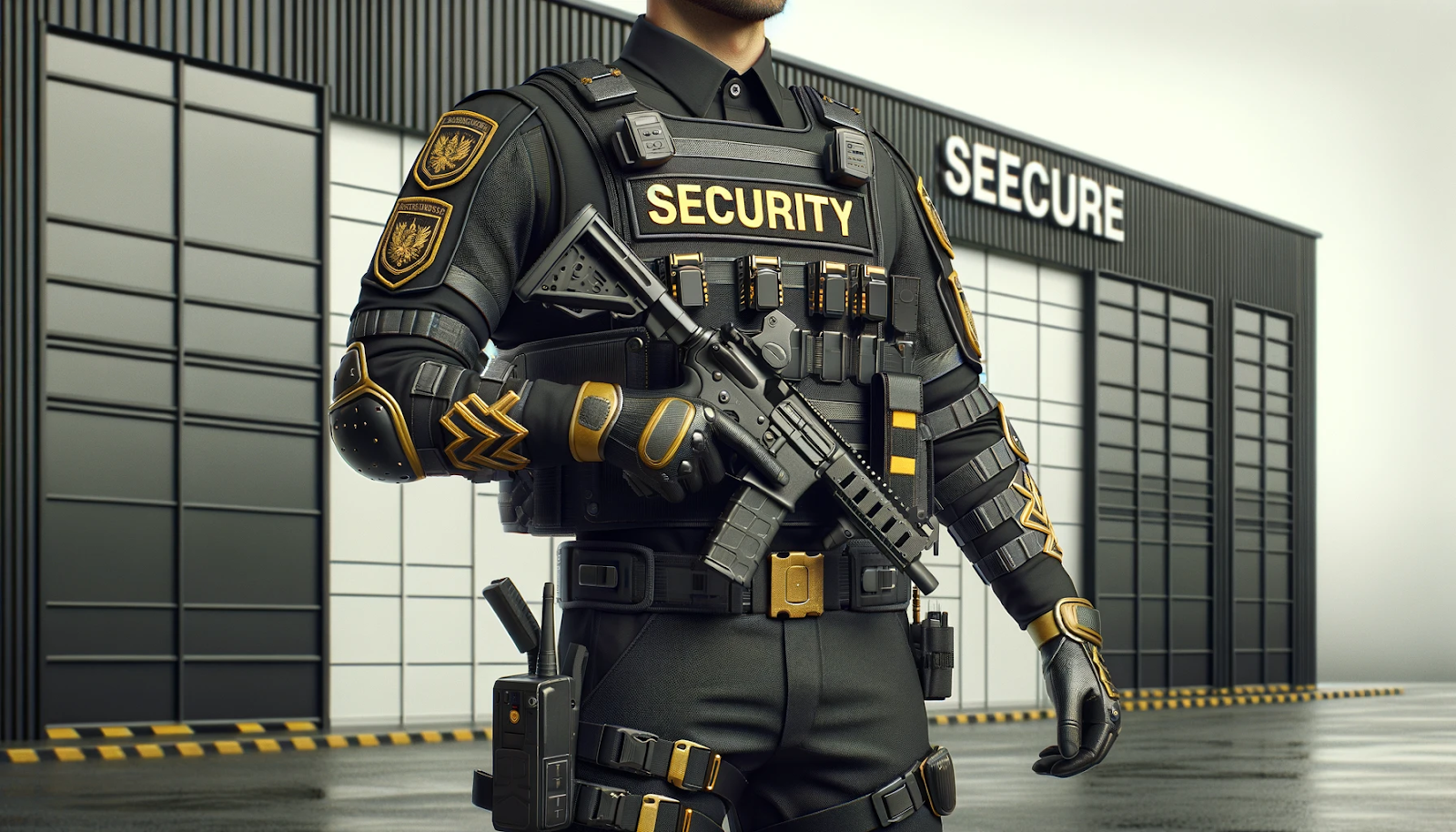Armed security guards play a crucial role in maintaining safety and order in various settings, from commercial properties to high-security areas. With the added responsibility of carrying firearms, specific safety measures and protocols must be in place to ensure their effectiveness and the safety of others. This guide outlines essential safety protocols for armed security guards, tailored for property managers, chief security officers, and security company hiring managers.
1. Rigorous Training and Certification
Mandatory Firearms Training
- Initial Certification: All armed security guards must complete a state-approved firearms training program. This ensures they understand firearm safety, handling, and usage.
- Continuous Education: Regular refresher courses are essential to keep guards updated on the latest safety protocols and techniques.
- Scenario-Based Drills: Practical drills that simulate real-life situations help guards practice decision-making under pressure.
Physical and Mental Fitness
- Fitness Assessments: Regular physical fitness evaluations ensure guards can handle the physical demands of their role.
- Psychological Evaluations: Mental health screenings help identify issues affecting a guard’s performance or judgment.
2. Standard Operating Procedures (SOPs)
Firearm Handling and Storage
- Secure Storage: When not used, firearms must be stored securely, preferably in a locked safe.
- Regular Maintenance: Routine checks and firearms maintenance ensure they are in proper working condition.
Incident Response
- Clear Protocols: Detailed SOPs for responding to various incidents, including threats, active shooter situations, and suspicious activities.
- Communication: Effective communication protocols, including the use of radios and reporting systems, to ensure timely and accurate information sharing.
3. Use of Force Policy
Graduated Response
- De-Escalation Techniques: Training on verbal and non-verbal de-escalation techniques to resolve situations without force.
- Force Continuum: A structured approach to using force, starting with the least severe methods and escalating only when necessary.
Legal and Ethical Considerations
- Legal Awareness: Understanding the legal implications of using force and the circumstances under which it is justified.
- Ethical Conduct: Emphasizing the importance of moral behavior and the consequences of misuse of power.
4. Personal Protective Equipment (PPE)
Body Armor
- Standard Issue: Providing body armor to all armed security guards as a standard part of their equipment.
- Proper Fit: Ensuring body armor fits correctly and is comfortable for prolonged use.
Additional Gear
- Communication Devices: Reliable radios or other communication devices for constant contact with team members and supervisors.
- Non-Lethal Options: Equipping guards with non-lethal alternatives, such as pepper spray, to provide options for varying threat levels.
5. Regular Evaluations and Drills
Performance Reviews
- Annual Reviews: Comprehensive evaluations of each guard’s performance, including adherence to safety protocols.
- Skill Assessments: Regular testing of firearm proficiency and response tactics.
Emergency Drills
- Scheduled Drills: Routine emergency response drills to ensure readiness and familiarity with SOPs.
- Unannounced Drills: Surprise drills to test guards’ ability to react under unexpected conditions.
6. Coordination with Law Enforcement
Partnership Agreements
- Formal Partnerships: Establishing formal agreements with local law enforcement agencies to enhance coordination during incidents.
- Joint Training: Participating in joint training exercises with law enforcement to improve collaboration and response efficiency.
Incident Reporting
- Timely Reports: Ensuring that all firearm-related incidents are reported promptly to the appropriate authorities.
- Detailed Documentation: Maintaining detailed records of incidents to support investigations and reviews.
Frequently Asked Questions (FAQs)
Q: What is the minimum training requirement for armed security guards? A: Armed security guards must complete a state-approved firearms training program and regular refresher courses.
Q: How often should firearms be maintained? A: Firearms should undergo routine checks and maintenance to ensure they are always in proper working condition.
Q: What steps are taken to ensure the mental fitness of armed security guards? A: Regular psychological evaluations are conducted to ensure guards are mentally fit to perform their duties.
Q: What should be included in the SOPs for armed security guards? A: SOPs should cover firearm handling and storage, incident response, communication protocols, and use of force policies.
Q: How can guards stay prepared for emergencies? A: Regular performance reviews, skill assessments, and scheduled and unannounced emergency drills help ensure readiness.
Implementing comprehensive safety protocols for armed security guards is crucial for maintaining a secure environment. These protocols, including rigorous training, clear SOPs, and regular evaluations, help ensure that armed security guards can perform their duties effectively and safely. By prioritizing these measures, property managers, chief security officers, and security company hiring managers can enhance their operations' overall safety and security.
.png)
.png)
.png)

.png)
.png)

.png)
.png)
.png)
.png)
